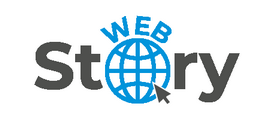In simple terms, cross-training focuses on building the skills of everyone in the company so that they gain a better understanding of exactly what it takes to run the business. As per Jeff Lupient, cross-training is important across industries, including car dealerships. Lupient started to overhaul the automotive group of his family when he took over as interim general manager at a money-losing Infiniti store near Minneapolis in 2007. To trim costs, Lupient started to cross-trained employees. He even set an example by handling many jobs himself – including F & I and used-car duties.
Jeff Lupient briefly marks the advantages of cross-training sales & F&I teams in auto dealerships
Cross-training in any kind of business setting is considered to be vital for helping the employees understand more about what one person or team should do to fulfil company objectives, as well as fostering a stronger sense of teamwork. Car dealerships are no exception. Departments within a car dealership are commonly siloed into their distinctive space, based on their unique job requirements. The sales team only deals with selling cars, parts personnel only know how to sell parts, F&I(Finance and Insurance) teams simply handle matters related to finance, and so on. However, it is vital to understand that sales and F&I teams in car dealerships are especially dependent on each other for their success. Hence, cross-training the employees in these departments improve the productivity and revenue of the dealership over the long run.
Cross-training sales & F&I teams in auto dealerships can help in:
- Fostering empathy: Having the F&I team and salespeople learn how the other works each day can make them more empathic towards each other’s struggles and build a stronger overall relationship. Salespeople would get to know how the steps in delivering a vehicle can be controlled by regulatory compliance. Hence, they may not be so quick to complain the next time a deal takes longer to come out of the F&I department due to a more complicated set of circumstances. On the other hand, F&I employees who get annoyed with salespeople quoting payment or VSC estimated costs would understand that at times a difficult buyer might need more information to move through with the sale. Both sales & F&I teams have their distinctive stressors. Hence, when they are trained in the roles of each other, they are able to gain a more informed perspective.
- Improving sales handoff to F&I: Good deals coming from the sales floor to F&I are an important objective at a car dealership. If sales and F&I teams are cross-trained, it shall get easier for those deals to come in the right way first and be set up for solid PVR. Per vehicle retail or PVR is a key measuring stick of F&I success. If the sales team understands how F&I employees try to manage the payment requirements of the buyers with the reality behind credit and solid approvals, they can construct better deals keeping the relevant products in mind. On the other hand, F&I teams could be trained in how the sales flow goes from the lot/call-in to the walk around/test drive, through to the price negotiation, to avoid losing the customer to another dealership.
As per Jeff Lupient, in a perfect dealership, sales & F&I teams should work in collaboration. This would help make sure that they can effectively bring the buyer from the lot to the sales desk, and then to the F&I office.

